A Brief History of Email
-
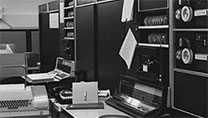
1965
The first emails, starting in about 1965, traveled over computer systems less powerful than a modern digital watch. An email message was simply a way to copy a file to another user's file directory. Since then, a lot of things have changed.
-

1971
Ray Tomlinson sends the first networked email, opting to use an @(at symbol) to connect the user's name and the machine at which the mailbox is located. Legend has it that the message read as follows: "QWERTYUIOP."
-
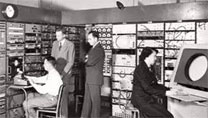
1977
Modern email emerges. Tomlinson's approach works only for networked systems running the same software. The use of such systems, connected via the Department of Defense's ARPANET (Advanced Research Projects Agency Network), grows in the 1970s. Two years later, a study found that 75 percent of all traffic on ARPANET was email.
-

1985
By the mid-1980s, email is commonplace among academics, government workers, and military personnel with access to the early Internet. Colleges provide students with email accounts that can traverse the Internet – if you know anyone anywhere else who has an address.
-
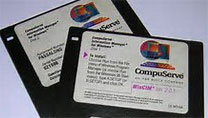
1989
The World, the first ISP, starts up. ISPs provide direct access to the Internet, as opposed to the walled gardens of CompuServe, The Source, and others, which have limited gateways to Internet resources. Thousands of ISPs follow suit throughout the 1990s. Because the Web doesn't yet exist and there are few central servers for services, email and discussion forums are the only options.
-
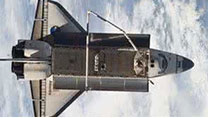
1991
The space shuttle Atlantis carries a Macintosh Portable to the International Space Station. Astronauts send the first email from outer space.
-

1992
The work of Nathaniel Borenstein and others is codified into MIME (Multipurpose Internet Mail Extensions) for general use across Internet email servers and gateways. This standard method of representing the format of attachments that aren't in pure ASCII means you can attach a file to and email and assume the file will arrive on the other end. In practice, attachments sometimes get garbled, but it's still a huge improvement on alternatives like putting floppy disks into a FedEx envelope.
-

1995
The first version of S/MIME was developed by RSA and other security vendors, In 1998, the situation began to change with the introduction of S/MIME version 2 that it was submitted to IETF for consideration as an Internet standard. In 1999, S/MIME version 3 was proposed by the IETF to enhance S/MIME capability. S/MIME (Secure/Multipurpose Internet Mail Extensions) is a standard for public key encryption and signing of MIME data.
-

1996
One of the first web-based email services, Hotmail, launches. Microsoft buys it for $400 million the next year.
-

1998
The word "SPAM"- as in junk mail, not luncheon meat – is added to the Oxford English Dictionary. U.S. government doesn't regulate unsolicited email until 2004.
-

2003
The workers who use a computer at work say they most commonly access the Internet and use email.
-
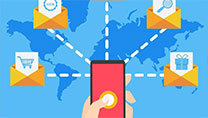
2012
In the United States, 90 million Americans access email through a mobile device, with 64 percent doing so on a near-daily basis.
-
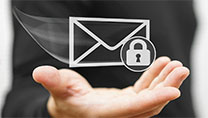
2003——2017
In view of the popularity of email applications, a variety attack email and fraud email also followed, email security issues have been highlighted as a big problem for Internet security, the Internet security industry needs to come up with a practical solution.
-

2018——
MeSince launch, start the new era of message encryption.
MeSince encrypt every outgoing email using certificate.
MeSince sign every outgoing email using certificate.
MeSince timestamp every outgoing email automatically.

 +44-20-7993-8937
+44-20-7993-8937